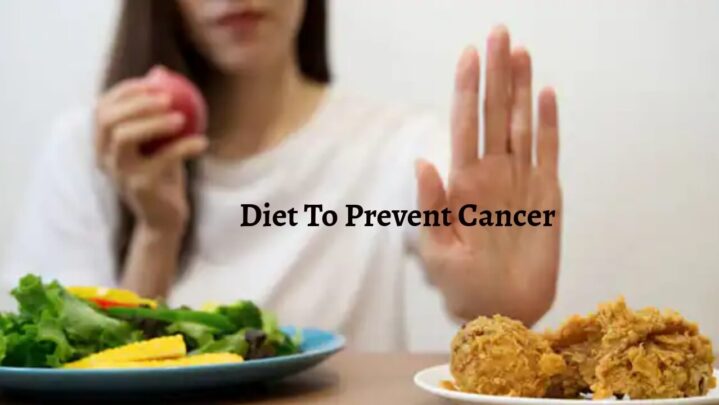A balanced, healthy diet can be very helpful in preventing cancer. While no single “magic” diet can prevent cancer, following some dietary recommendations can reduce your risk of getting the disease. Here are some dietary suggestions to take into consideration.
1. Consume various fruits and vegetables; they are high in antioxidants, vitamins, minerals, and fibre, all of which have been linked to a reduced risk of some malignancies. Aim for at least five servings of fruits and vegetables daily to ensure a broad mix of nutrients.
2. Reduce added sugars and bad fats: High-added sugar and unhealthy fat diets have been linked to a higher risk of cancer. Limit your consumption of sweetened beverages, snacks, sweets, and items high in saturated and trans fats, including fried foods, processed snacks, and baked goods.
3. Include healthy fats: Consuming healthy fats, such as those in nuts, seeds, avocados, and fatty fish like salmon, might improve general health and perhaps reduce your risk of developing some malignancies.
4. Limit your alcohol intake: Drinking alcohol has been associated with an increased risk of numerous cancers, including mouth, liver, and breast cancer. If you decide to drink, do it in moderation, defined as up to one drink for women and up to two for men daily.
5. Eat a healthy, balanced diet: Overall, lowering your risk of cancer requires maintaining a diet of a variety of foods focusing on whole, minimally processed foods. Focus on a healthy, sustainable strategy for nutrition rather than trendy diets or extreme eating habits.
Even though a nutritious diet can reduce your risk of developing cancer, it’s crucial to remember that nutrition is only one factor. Numerous other lifestyle choices, like getting enough sleep, controlling stress, engaging in regular physical activity, abstaining from tobacco use, and getting the necessary immunizations and medical exams, are also crucial in preventing cancer. To create a customized nutrition strategy that fits your goals and health situation, speak with a healthcare expert or a qualified dietitian.





